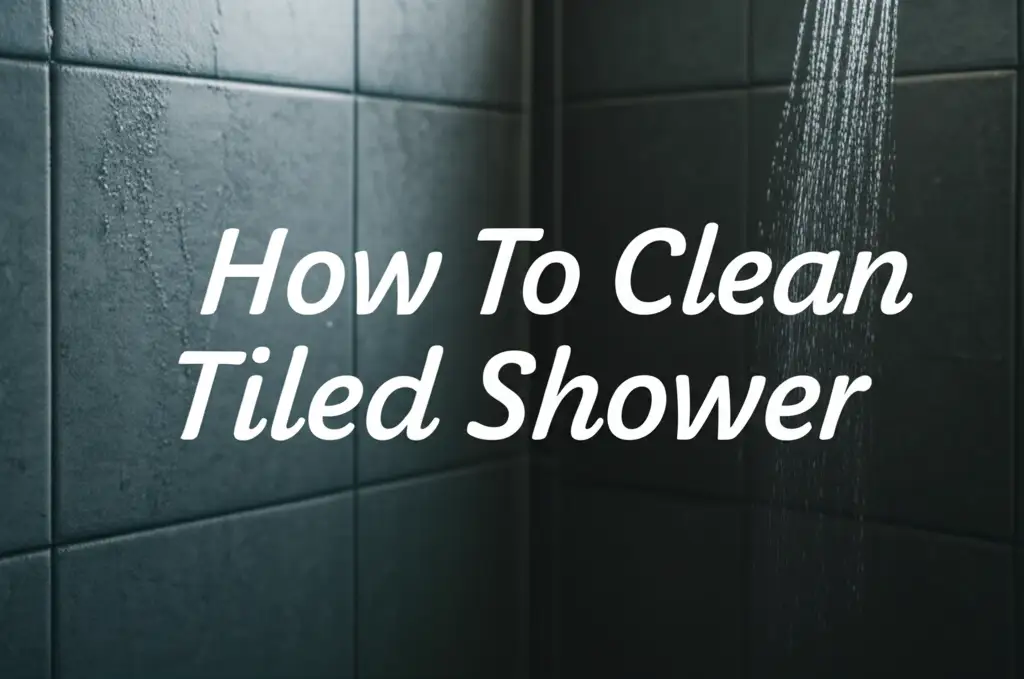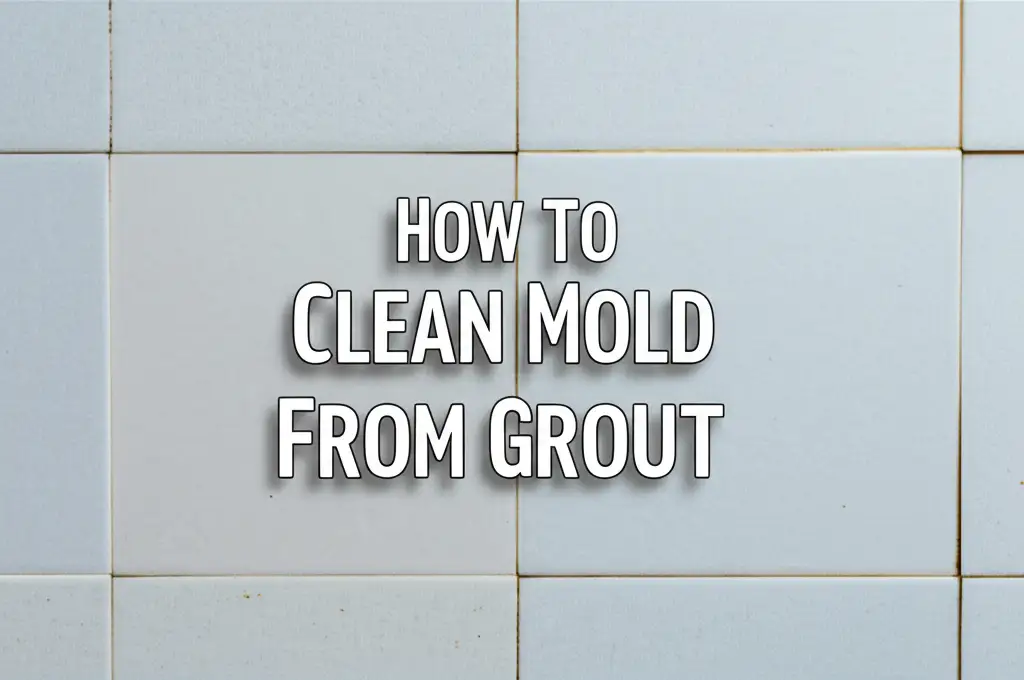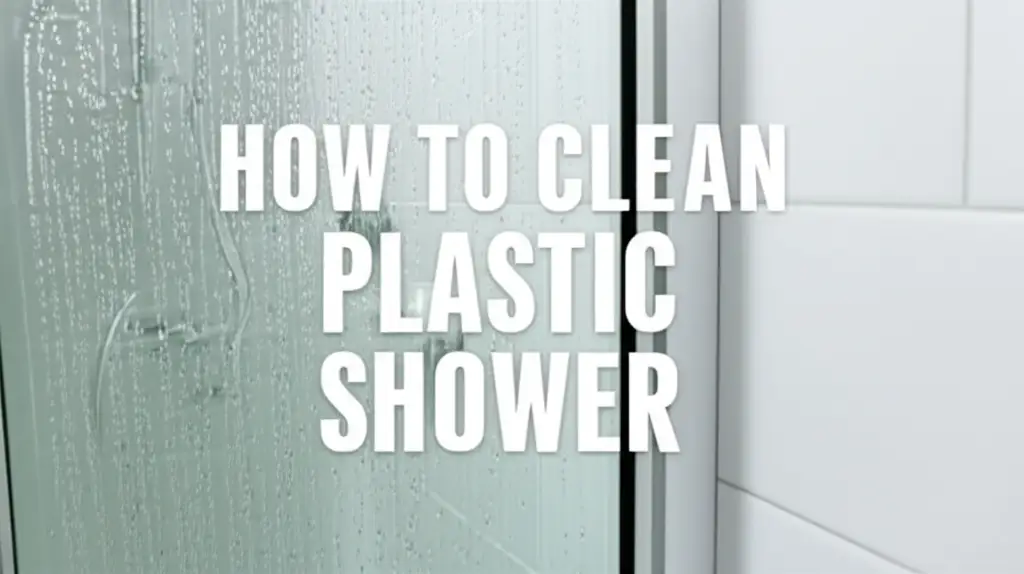· Home Cleaning · 13 min read
How To Clean Tiled Shower

Sparkling Clean Tiled Shower: Your Ultimate Guide
Imagine stepping into your shower, eager for a refreshing start to your day. Instead, you see dull tiles, murky grout, and stubborn soap scum. It is a common problem. Tiled showers, while beautiful, can quickly lose their shine. They accumulate grime, hard water spots, and even mold. Learning how to clean tiled shower surfaces effectively is essential. A clean shower improves hygiene and extends the life of your bathroom tiles. This guide gives you actionable steps to restore your tiled shower’s sparkle. We cover daily habits, deep cleaning methods, and natural solutions. Get ready to transform your shower space.
Takeaway:
- Regular quick wipes prevent buildup.
- Deep clean your tiled shower weekly or bi-weekly.
- Use appropriate cleaners for your specific tile type.
- Address grout and mold issues promptly to maintain hygiene.
- Ensure proper ventilation to prevent moisture problems.
Clear, Concise Answer:
To clean a tiled shower, pre-rinse surfaces with warm water. Apply a suitable cleaner, commercial or natural, allowing it to penetrate dirt. Scrub tiles and grout lines with a brush or sponge. Rinse thoroughly and dry to prevent water spots and mildew. Consistent cleaning maintains shine and hygiene.
Understanding Common Tiled Shower Problems
Tiled showers face many common issues. Soap scum is one of the most frequent. This white, chalky film builds up from soap residues mixing with hard water minerals. Hard water stains appear as unsightly mineral deposits. They leave a dull finish on your tiles. Mold and mildew thrive in the damp, warm environment of a shower. These black, green, or pink growths often appear on grout lines and in corners. Neglecting these problems makes your shower look dirty. It can also create an unhealthy environment. Addressing these issues regularly keeps your shower fresh and clean.
Another challenge is stained grout. Grout is porous. It absorbs dirt, soap, and moisture easily. This leads to discoloration and mold growth over time. Different tile materials also have specific cleaning needs. Ceramic and porcelain tiles are durable. Natural stone tiles like marble or travertine require gentler care. Using the wrong cleaner can damage their surfaces. Understanding these challenges helps you choose the right cleaning approach. It prepares you to tackle each problem effectively. We will show you how to clean tiled shower areas, including these tough spots.
Gathering Your Essential Tools for Tiled Shower Cleaning
Before you start cleaning your tiled shower, gather the right tools. Having everything ready makes the job easier and more efficient. A sturdy scrub brush with stiff bristles is crucial for grout. A softer brush or sponge works well for tile surfaces. You will need a spray bottle for mixing cleaners. Buckets are useful for holding water or rinsing tools. Old toothbrushes are excellent for small, tight spots and detailed grout cleaning. Microfiber cloths are perfect for drying. They absorb water without leaving streaks.
Safety gear is also important. Always wear rubber gloves to protect your hands from harsh chemicals. Safety goggles shield your eyes from splashes. Consider wearing an old pair of clothes. Cleaning can be a messy job. Good ventilation is key. Open a window or turn on the exhaust fan. This reduces the inhalation of fumes. Having these items on hand ensures you can clean your tiled shower safely and effectively. It prepares you for a thorough cleaning session.
- Essential Tools Checklist:
- Sturdy scrub brush (for grout)
- Soft sponge or cloth (for tiles)
- Spray bottle
- Buckets
- Old toothbrushes
- Microfiber cloths
- Rubber gloves
- Safety goggles
- Ventilation (open window/fan)
Daily Habits for a Cleaner Tiled Shower
Maintaining a clean tiled shower does not always require deep cleaning. Simple daily habits can make a big difference. These small efforts prevent major buildup. After each shower, take a minute to wipe down the walls and floor. A squeegee removes water from tile surfaces quickly. This prevents hard water spots from forming. It also stops soap scum from sticking. Keep a small squeegee handy in your shower. This makes it easy to use consistently.
Another good habit is rinsing your shower after use. This washes away loose dirt and soap residue. It prevents them from drying onto the tiles and grout. Ensure proper ventilation. Turn on your bathroom exhaust fan during and after showering. This helps dry out the shower area. It reduces humidity. Lower humidity discourages mold and mildew growth. How to clean mold in shower becomes less of an issue with good airflow. These simple steps significantly reduce the frequency and intensity of deep cleaning. They keep your tiled shower looking fresh daily.
Deep Cleaning Your Tiled Shower: Step-by-Step Guide
Deep cleaning your tiled shower tackles stubborn grime. It restores its original shine. Start by clearing everything out of the shower. Remove all bottles, sponges, and anything else. Rinse the entire shower area with warm water. This wets the surfaces and loosens some dirt. Then, choose your cleaning solution. You can use a commercial tile cleaner or a natural alternative. Apply the cleaner generously to all tiled surfaces. Make sure to cover the grout lines thoroughly. Let the cleaner sit for several minutes. This allows it to break down dirt and scum. Always follow the product instructions for dwell time.
Now, it is time to scrub. Use your scrub brush for grout lines. Apply firm pressure to work the cleaner into the grout. For tiles, use a softer sponge or brush. Scrub in a circular motion. Pay extra attention to areas with heavy soap scum or stains. Rinse the entire shower very well with clean water. Ensure all cleaner residue washes away. Finally, dry the surfaces with a clean microfiber cloth. This prevents water spots and leaves a sparkling finish. This process helps you effectively clean tiled shower walls and floors.
Tackling Soap Scum and Hard Water Stains
Soap scum and hard water stains are persistent problems. They often require targeted treatment. For light buildup, a vinegar solution works well. Mix equal parts white vinegar and water in a spray bottle. Spray the affected areas and let it sit for 15-30 minutes. The acidity of vinegar helps dissolve mineral deposits. For tougher stains, sprinkle baking soda directly onto the wet surface. Then spray with vinegar. This creates a fizzing action. The fizzing helps lift stubborn grime. Scrub with a stiff brush.
Commercial soap scum removers are also very effective. Look for products designed specifically for these issues. Always read the label and follow safety precautions. Some strong cleaners contain acids that can etch natural stone. Make sure the product is safe for your tile type. Apply, let it dwell, and then scrub vigorously. Thorough rinsing is critical. Residue can attract more dirt. This focused effort helps you effectively clean tiled shower surfaces of these common blemishes.
Revitalizing Grout Lines in Your Tiled Shower
Grout lines can quickly become discolored and unsightly. They are porous and trap dirt easily. How to clean grout in shower requires specific attention. A specialized grout cleaner is often the best option. These products contain agents that penetrate and lift stains from grout. Apply the cleaner directly to the grout lines. Let it sit for the recommended time. Then, use a stiff-bristled brush or an old toothbrush. Scrub along the grout lines with firm, consistent pressure. You will see the dirt lifting away.
For a natural approach, a paste of baking soda and water works wonders. Mix enough baking soda with a little water to form a thick paste. Apply this paste directly onto the grout lines. Let it sit for 10-15 minutes. Then, spray with white vinegar. The fizzing action helps loosen deep-seated dirt. Scrub with your brush. Rinse the grout lines thoroughly with water. If the grout is still stained after cleaning, consider using a grout sealer. A sealer protects the grout. It makes future cleaning easier. This proactive step helps maintain your tiled shower’s appearance.
Natural Cleaning Solutions for Tiled Showers
Many effective cleaning solutions exist in your pantry. You can clean your tiled shower without harsh chemicals. White vinegar is a powerful natural cleaner. Its acidic nature cuts through soap scum and hard water stains. Mix equal parts white vinegar and water in a spray bottle. Spray it generously on tiles and grout. Let it sit for 15-30 minutes. Then scrub and rinse. For strong odors, add a few drops of essential oil like tea tree or lemon. Tea tree oil also has natural antimicrobial properties. How to clean shower with vinegar is a popular and safe method.
Baking soda is another versatile natural cleaner. It acts as a mild abrasive. It helps scrub away grime without scratching surfaces. Make a paste with baking soda and a little water. Apply it to stubborn stains or dirty grout lines. Let it sit for 10 minutes. Then, spray with vinegar. The chemical reaction creates fizzing bubbles. These bubbles help lift dirt. Scrub with a brush and rinse thoroughly. How to clean shower with baking soda is ideal for everyday cleaning and specific spot treatments. These natural options are safer for you and the environment. They keep your tiled shower sparkling clean.
Dealing with Mold and Mildew in Tiled Showers
Mold and mildew are common issues in damp shower environments. They appear as black, green, or pinkish growths. They thrive on moisture and organic matter. Addressing them promptly is crucial for hygiene. For light mold, a solution of white vinegar works well. Spray undiluted white vinegar directly onto the moldy areas. Let it sit for an hour. Then, scrub with a brush. The vinegar kills many mold species. Always ensure good ventilation when cleaning mold.
For more stubborn mold, a bleach solution might be necessary. Mix one part bleach with 10 parts water. Apply this solution to the moldy areas. Let it sit for 10-15 minutes. Scrub gently with a brush. Rinse thoroughly with water. Never mix bleach with vinegar or ammonia. This creates toxic fumes. Wear gloves and eye protection. How to clean shower with bleach offers a powerful solution for severe mold. After cleaning, focus on prevention. Ensure excellent ventilation in your bathroom. Use an exhaust fan. Wipe down shower walls after each use. These steps prevent mold from returning.
Specific Tile Types and Their Cleaning Needs
Not all tiles are created equal. Different materials require specific cleaning approaches. Knowing your tile type prevents damage. Most tiled showers use ceramic or porcelain tiles. These are durable and non-porous. They can handle a wider range of cleaners. You can use commercial cleaners, vinegar, or baking soda on them. Regular scrubbing and rinsing keep them looking great. How to clean ceramic tile shower often involves standard methods.
Natural stone tiles, such as marble, travertine, or granite, are more delicate. They are porous and sensitive to acidic cleaners. Never use vinegar, lemon juice, or harsh abrasives on natural stone. These can etch or dull the surface. Use pH-neutral cleaners specifically designed for natural stone. Mild dish soap and water also work well. Always test any cleaner in an inconspicuous area first. Seal natural stone tiles regularly. This helps protect them from stains and moisture. How to clean marble shower floor details proper care for this specific stone. Always dry natural stone surfaces immediately after cleaning. This prevents water spots and mineral deposits.
Maintaining Your Tiled Shower for Long-Term Shine
Consistent maintenance keeps your tiled shower looking new. It also reduces the need for frequent deep cleans. Beyond daily wiping, consider a weekly quick clean. Use a daily shower spray after each use. These sprays help prevent soap scum and hard water buildup. Just spray and leave. They form a protective barrier.
Sealing your grout lines is another vital step. Grout is porous. It absorbs water, dirt, and mold spores. A good grout sealer creates a barrier. This barrier repels moisture and stains. Apply a sealer every 6-12 months, depending on use. This makes cleaning much easier. It also protects your grout from discoloration. Proper ventilation remains paramount. Always run your exhaust fan for 15-20 minutes after showering. This removes humid air. It prevents mold and mildew from taking hold. Periodically inspect your caulking. If it shows signs of cracking or mold, replace it. Healthy caulking prevents water from seeping behind tiles. Regularly inspecting and addressing these small issues keeps your tiled shower in top condition. How to clean shower tiles and grout focuses on these crucial areas.
FAQ Section
How often should I deep clean my tiled shower?
You should deep clean your tiled shower every one to two weeks. This frequency depends on how often the shower is used. It also depends on your bathroom’s ventilation. Regular deep cleaning prevents the buildup of soap scum, hard water stains, and mold. Daily quick wipes will extend the time between deep cleans.
What is the best product for cleaning grout in a tiled shower?
For cleaning grout, a dedicated grout cleaner works best. These products target deep-seated dirt and stains. Alternatively, a paste of baking soda and water followed by a vinegar spray is effective. Always use a stiff-bristled brush for scrubbing grout lines.
Can I use bleach on all types of shower tiles?
No, you should not use bleach on all types of shower tiles. Bleach is safe for ceramic and porcelain tiles. However, it can damage natural stone tiles like marble or granite. It can also discolor colored grout. Always check your tile material before using bleach.
How do I prevent mold from growing in my tiled shower?
To prevent mold, ensure proper ventilation. Run the exhaust fan during and after showers. Wipe down shower walls and doors after each use. Consider using a daily shower spray. Seal your grout lines regularly. These steps reduce moisture, which mold needs to grow.
Is it safe to mix vinegar and baking soda for cleaning?
Yes, it is safe to mix vinegar and baking soda for cleaning. When combined, they create a fizzing reaction. This reaction helps lift dirt and grime. They are both safe, natural cleaners on their own. They provide a powerful, non-toxic cleaning solution for many shower issues.
How do I remove stubborn hard water stains from my tiles?
To remove stubborn hard water stains, use a strong acidic cleaner. White vinegar is a good natural option. For very tough stains, specific hard water stain removers are available. Apply the cleaner and let it sit for a period. Then, scrub vigorously with a non-abrasive pad.
Conclusion
A clean tiled shower transforms your bathroom. It moves it from neglected to inviting. We have walked through everything needed to achieve this. From daily habits like quick wipes and proper ventilation to deep cleaning methods for persistent grime. We covered tackling soap scum, hard water stains, and mold. We also discussed revitalizing grout lines. Remember to choose cleaners suitable for your specific tile type. Natural solutions like vinegar and baking soda offer effective, safe alternatives.
Consistency is key in shower maintenance. Small, regular efforts prevent major buildup. This reduces the need for intense cleaning sessions. A well-maintained tiled shower not only looks better but also stays more hygienic. Take these steps and implement them today. Enjoy a sparkling, fresh tiled shower space. Your efforts will pay off with a cleaner, healthier bathroom environment. Start your journey to a brighter, cleaner shower now.
- tiled shower cleaning
- shower grout
- tile maintenance
- bathroom cleaning
- mold removal
- hard water stains




